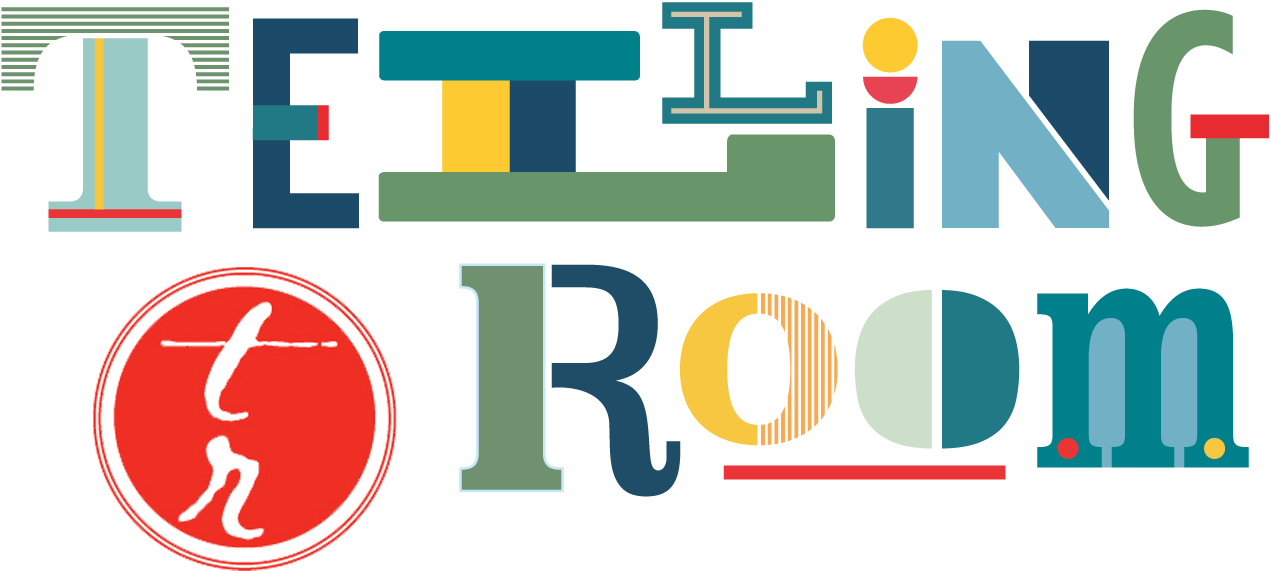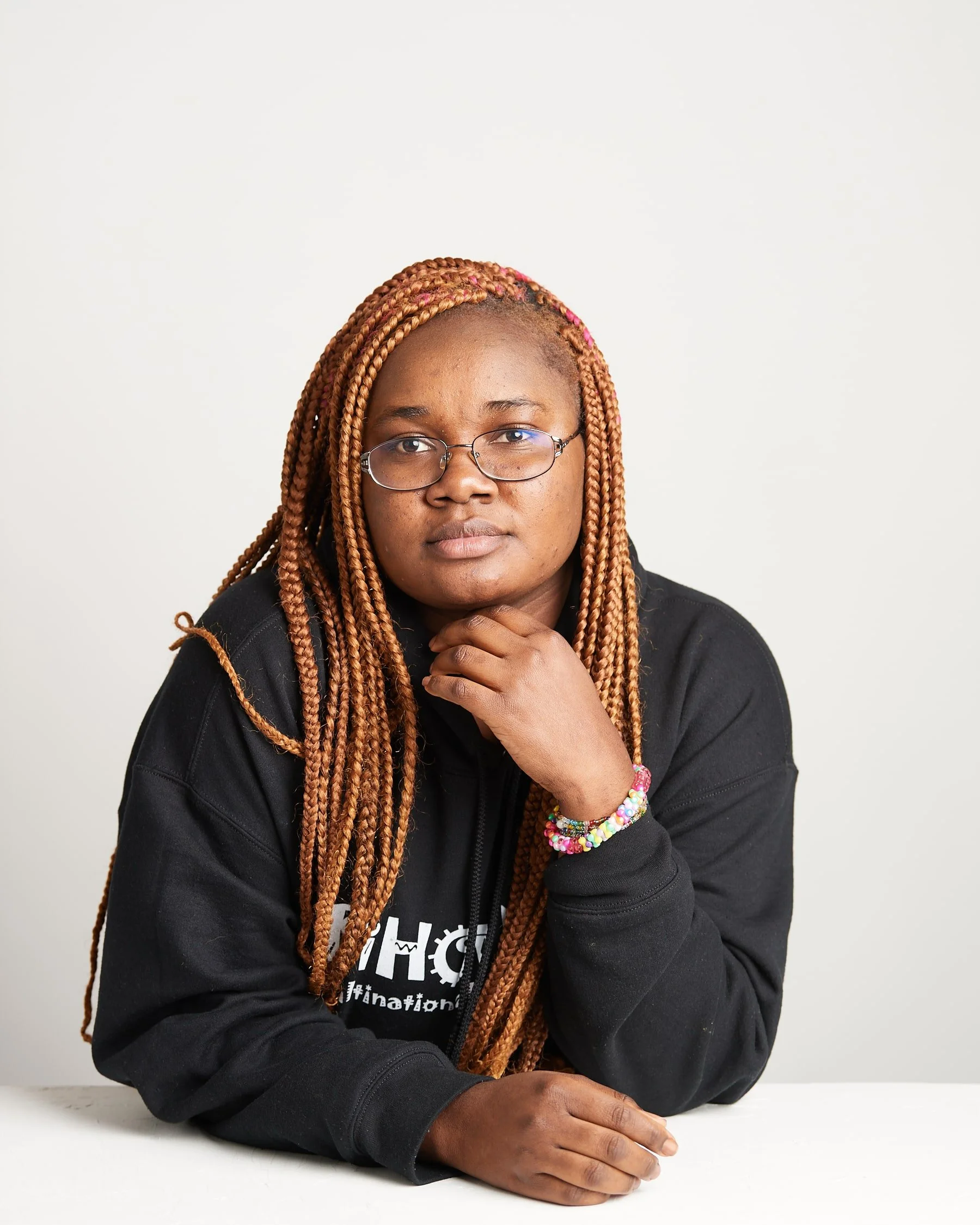"No Water, No Food: Thirteen Days in the Jungle" by Mayinga Mukinayi
2023 Maine Literary Award Winner for Youth Competition in Nonfiction
One day, many years ago, an eight-year-old girl had to leave her country with her parents because of a war. They left Angola and fled to the Democratic Republic of Congo. Then the years went by and she married and had children. Among these children was my mother, and I was born from her, in the city of Kinshasa.
I was a very smart little girl whose life, by the age of four, always involved travel. I already took a short trip to my great-grandmother's house to get cookies for breakfast, and I sometimes took buses to go to school alone. My mother just told the driver where I was going to get off.
Every day, I took the same journey. I went on these short trips without knowing that life was preparing me for a long trip. When I was five, I made a long trip from Kinshasa to Angola with my mother. Eventually we had to leave Angola for Brazil when I was thirteen, all this in search of better living conditions.
We lived in Brazil for a couple of years and there were some moments when we had some small difficulties, but God was always on our side. My mother eventually made the decision to leave Brazil. Then came the longest journey of my life. My family and I had to be strong to survive.
It was on March 19, 2019, four months before I turned sixteen, that we took the bus to leave Brazil. We felt joyous on the buses because we couldn’t imagine what was waiting for us ahead. It was not the trip of my dreams because we found ourselves facing many difficulties along the way. We passed through several countries clandestinely. I was very scared, because I was living scenes from movies I had watched.
After a long journey—months—we arrived in Necocli, Colombia, where the biggest adventure of our trip began. We had to spend the night on the beach because we had arrived too late to be able to cross the sea. The next day, we woke very early to get the tickets for our journey across the sea. It was a two-hour trip to reach our next destination, Capurgana. After we crossed the sea, we were all distressed. I could see the faces of the elders. I was very scared because we were about to enter a jungle with dangerous animals. There were signs at the entrance showing all the animals that lived in that jungle, animals like snakes, black jaguars, and big iguanas.
It was a sunny day; it was very hot. The first day we entered the jungle. We climbed mountains, crossed rivers, I was shaking with fear, because not everyone who enters that jungle comes out alive– many die from hunger. We had a lot of food and a lot of clothes, but we ended up leaving behind some food and all the clothes we had because they became too heavy to carry. We had no idea how the path was or how long we would be inside that big and scary jungle. If we knew how long the trip was going to be, we would have never left the food behind.
It was always good to be together with many families, but we were always lagging behind because some of my sisters were so much younger. Besides me and my mom, there were five others, my four sisters and one brother. Sadrack was seventeen, Elizabeth was fourteen, Winner was eight, Acacia was six, and Adonai was only two. Elizabeth had foot problems and couldn't walk fast. I carried my Adonai on my back. Both of these things slowed us down even more. Families would start walking with us but would leave us behind because we were too slow.
A lot of bad things happened on that trip: my mother almost drowned twice, Adonai was carried away by a river current in Honduras, we got lost with Elizabeth and Sadrack in the jungle, and my whole family was almost carried away by the river current. But God was always there with us and never left us.
Once, I remember that we found green bananas, and they were really green. We never even knew where they came from, because there were no banana trees in the jungle. We grilled the bananas and ate them with salt that we found hanging from a tree in a Ziploc bag. Adonai didn't eat the bananas, she just cried because she wanted real food. I cried so much, and I know my mother also cried more. But she didn’t want to discourage us, so she hid her tears. On the fourth day, we ran out of water, and I remember my sisters crying from thirst. Then, two days later, we ran out of food. My sisters were beating their stomachs because they couldn't take the hunger and thirst anymore, but God always gave them the strength not to give up. I was afraid of losing my sisters there. Many parents lost their children to hunger and thirst in that jungle. Even with hunger, thirst, and tiredness, we kept walking. I always told my sisters that we were almost there, even though by the tenth day we still had not arrived. On the eleventh day, we found water. It was a huge joy! We rested, drank water and continued walking. Sometimes, when there were other travelers passing by my mother would ask them to give my sisters food. People gave us a little of what they had and wished us good luck. I think some didn’t believe we could get out of there alive. But I had faith that we would get out alive.
After many days of hiking and mountain climbing, we climbed a mountain that took us eight hours to climb. On the twelfth day, I fell on the ground with my two-year old sister on my back because I couldn’t breathe anymore. I just cried and called for my mom, “Mommy, Mommy!” I was trying to tell her that I needed more air, but I couldn’t speak. I just kept saying “Mom, Mom, Mom, Mom,” and started vomiting green liquid. It felt like I was going to vomit up my heart. My mom took off her blouse and started shaking it over me to see if she could give me more air. After five minutes of lying on the ground, I gained some strength and started to feel better. When I got up, I once again picked up Adonai and we started walking back up the mountain. Again, at the top of the mountain, I was out of breath, and I could only gasp, “Mommy, Mommy, Mommy, Mommy!” And my mom started crying, saying, “Mayinga, don’t do this to me. If you stop, I won’t be able to continue.” These words gave me strength because I didn’t want to die and leave my family. My mother took my shirt off so I could breathe easier. I lay down and after a few minutes, everything went back to normal and we continued the journey.
After thirteen days in the jungle in Panama, my family and I were very tired and very hungry. We thought we would never leave the jungle. I was crying and my mother was too. I was feeling bad because my sisters were weak and hungry, and they were just babies. The thirteenth day in the jungle was sunny, sunny, and sunny. At one point, we walked out of the trees and into a clearing to find a river. The sun was burning our skin because we were away from the trees. We took a river shower, and we drank water. My sisters drank the last of the juice we had. We rested for a while and then started walking again.
We walked and walked. We met some of the police from Panama. We knew that if the police were there, we must be close to the refuge center because the police protected the refugees. They told us that we would arrive at the first refuge center in 9 km. It was 3 pm. My mom asked for food for my sisters and one policeman gave us all of his food. We could have arrived at the refugee center that day around 8 pm, but as we were with children and my sister had foot problems, we were not going to arrive until the next day. Whenever it got dark, we slept because the jungle was dangerous in the dark, with animals, rivers, and stones. We saw a lost family, but they didn’t want to rest yet because it was too early. They kept walking, but we slept one more night in the jungle.
The next day, we continued on the final part of our journey out of the jungle. Along the river we found the family from the night before and we started walking together. We lost the path, and we didn’t know where to go. We sat for a long time thinking we were lost. A lady in a canoe appeared—she was a villager who explained the right direction. But then again, we were lost. From a certain distance, a man in all white on a horse shouted, “Hey! Aqui esta el camino!” (Hey! Here is the way!). We hurried toward him, but he was nowhere to be found—he just disappeared. Today we say that the man was an angel because we didn’t know where he came from or where he went.
We continued to walk. We were starving. Then we found a lot of banana trees, which made us think we were close to the refugee center, because people planted those trees. We took some bananas with us. Finally, after seven hours, we heard voices. We followed the voices and found a crowd of people. It was Bajo Chiquito, Panama! We saw a huge river, people taking a bath, and we felt a lot of joy. I felt a huge peace in my heart, a tranquility. Then we had to cross the river to get to the other side where everybody was.
A lot of people came to hug us. Many thought that my family had died, because they all had come through the jungle but had passed us, since we moved like sloths. For many people, this journey took five to seven days, but for us, it took thirteen days. I felt very proud, especially of my sisters Winner, Acacia, Adonai, and Elizabeth because, although they cried a lot, they did not give up.
Panama was just the first refuge to recover from the long and dangerous journey. But the journey didn’t stop there because our destination was the United States. But that is another story. The important thing is that today we are happy, my mom and siblings came out of the jungle in one piece. Despite the difficulties in that jungle, without food and water, we overcame it.
Mayinga Mukinayi is a poet, a songwriter, a flutist, and a junior at Deering High school. In her free time, she likes to sing and play her flute that she made out of a PVC pipe! At Deering, she is the President of the Spanish club and Co-President of the Sisterhood club. In the future, Mayinga wants to be a lawyer, a psychologist, and a singer. In her piece, “No Water, No Food: Thirteen Days in the Jungle,” Mayinga writes about overcoming the difficulties she and her family experienced in the jungles of Colombia and Panama.

